When your workplace culture destroys your firm
ALSO: Dyson doesn't like you being at home / TV freelancers unite
I used the August lull to read two culture books. Firstly I chose Legacy (featured last week) because a couple of people I really respect talked to me about the powerful behaviours described in it (how senior players ‘sweep the sheds’ for example). I have to say in the end I found it both dated and a little formulaic. The second book was What You Do Is Who You Are by venture capital titan Ben Horowitz. You might be thinking what can some billionaire bro teach me about culture? I had those same reservations, not least because I’d seen him do a talk a couple of years before and was unconvinced by the artificial nature of some of his pronouncements (firms should ‘create shocking rules’, jarred on that first viewing for example).
But I’d suggest you give it a chance because it turns out it’s a very readable book.
There’s one episode in the book that is particularly instructive. Horowitz talks through the specifics of the Uber culture. Uber was very intentional about building a culture (as we covered on the brilliant interview of Mike Isaac) and created Uber University where all employees would learn how to handle certain scenarios. The training was to create a hyper-competitive hive of workers intent of winning no matter what. Amongst the schoolings at Uber University was a scenario where a competitor had launched a new feature that trumped the offering from the ride-sharing app, the correct answer that employees were taught was that in the absence of being able to match the new competitor they should fake it, cobbling together something that looked like it would work. As Horowitz writes, ‘The underlying message was clear clear: if the choice is integrity or winning, at Uber we do whatever we have to do to win’.
(As I discussed with Mike Isaac on the original podcast I do still wonder if there was a version of Uber’s culture that could have had competitiveness and integrity?)
Below is a selection of some of the other key lessons:

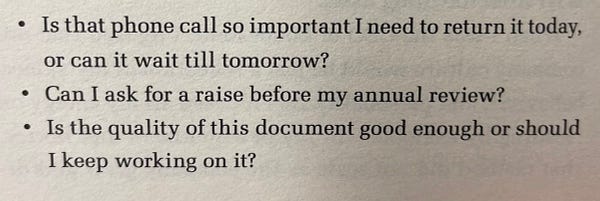
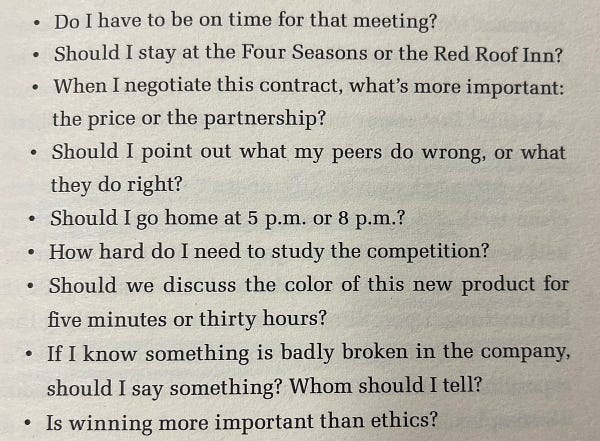


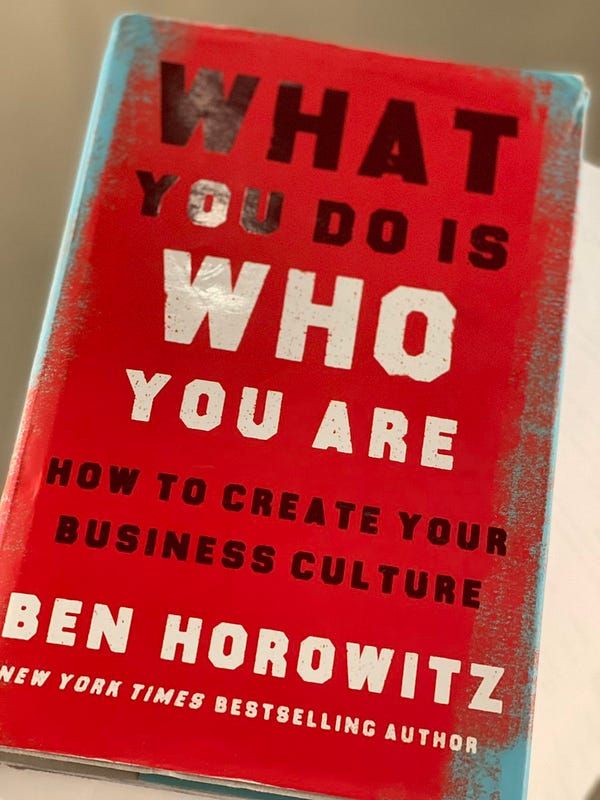




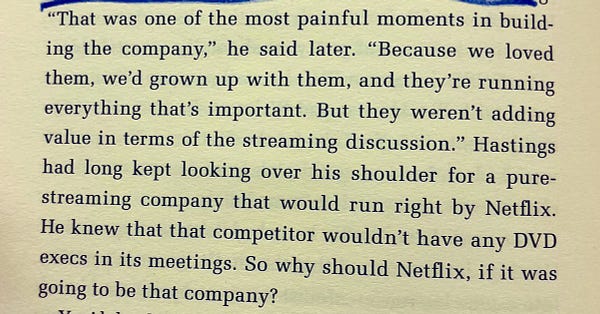

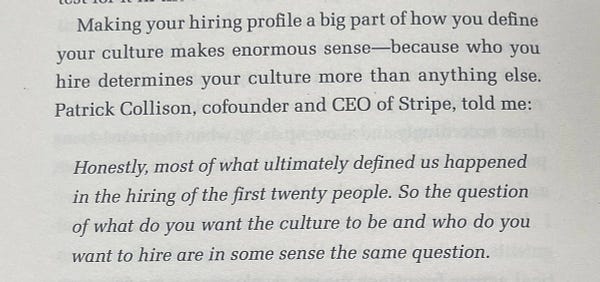
If you’re interested in joining in a discussion on the book I’ll be continuing the discussion on Twitter this week, or you can drop a comment in the online version of this newsletter. If you’re feeling adventurous you can reply to the newsletter with a voicenote as I’ll be doing a podcast on the book.
I was on LBC talking about the headline that James Dyson believes workers must be "unequivocally" told by ministers to return to the office. I mentioned that bosses have worked hybrid for a long-time, working from home when it suited them etc. Someone from Dyson got in touch with me and asked me to refrain from talking about how the inventor works. It means I probably shouldn’t mention the Dyson employee who got in touch with me to tell me what it’s like to work at the firm. At least Dyson puts his money where his mouth is, he’s got millions of pounds of offices in his portfolio. Oh hang on, that’s not why he wants everyone back in the office is it?

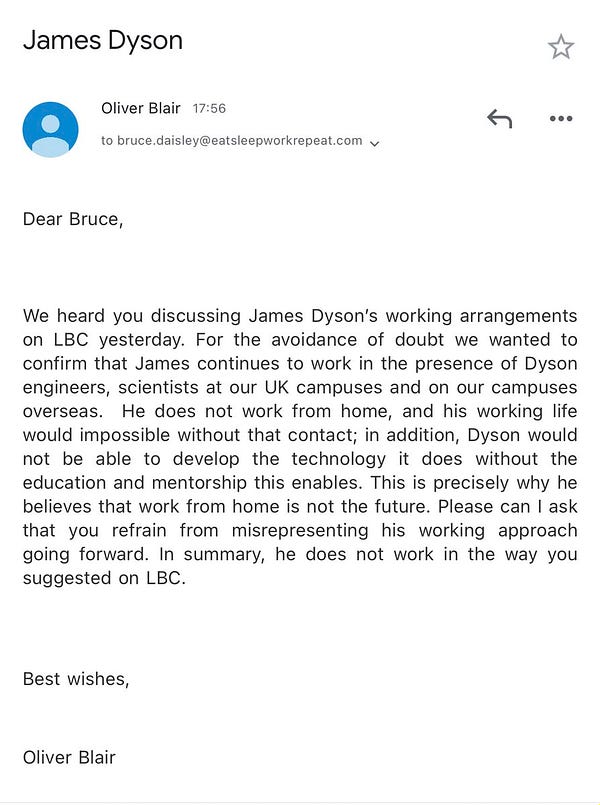
Facebook unveiled their VR meeting app in Oculus ‘Horizon Workrooms’ - as someone who has attended a conference in VR it really isn’t the future of working in the current form. It’s more like when every TV you were sold was 3D because ‘3D was the future’. You’ve probably not watched a 3D film in 2021 (Here’s more on FB’s workrooms)
Interesting that remote working has become a battleground in the leadership of Britain’s biggest union, Unite. One (ultimately unsuccessful) candidate, Steve Turner’s take ‘When did we ever agree for our homes to become our workplaces?’ sounds like a back-to-the-office push, and beware of the impact on diversity of rash headlines like that
A Wall Street Journal article saying that as it nears two years of WFH even reluctant firms are accepting that the world has changed: 83% of workers surveyed said it had been a success
Digiday reports one organisation who claim their productivity from WFH is ‘through the roof’ by eliminating a lot of virtual meetings
Freelancers in the TV sector have been impressively organising over the last year (as a response to reports of abuse) - this charter by the TV Mindset is an interesting model for other industries with lots of contractors
Google published a manifesto ‘It’s Ok to…’ attempting to cover some themes of choice about remote working. Danny Denhard wrote an interesting take on it







LOL, that e-mail you have got about Dyson’s situation is hillarious! Even in that e-mail, they couldn’t abstain from the corporate language 😂!
On another note, when building corporate culture, I would add a mandatory discussion with managers and the top people in the company in which we discuss labor law, overworking the people and respecting holiday breaks. By studying the video games industry at large, I have encountered multiple situations in which workers feel like they should put in more hours, more and more, and end up being burnt out. On the contrary, there are some companies which require the employees to leave office at 5pm sharp, no questions asked.